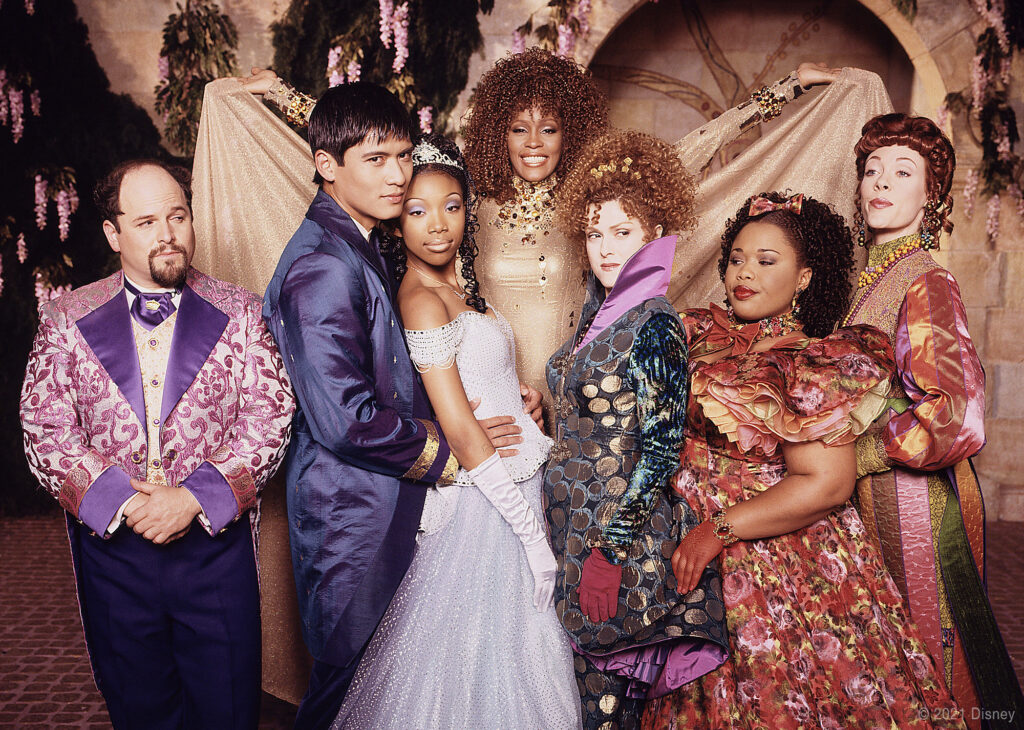Last week, we celebrated the 25th anniversary of Rodgers & Hammerstein’s Cinderella. This week at Just Add Color, the celebration continues with a conversation with the prince himself, Paolo Montalban.
I chatted with Montalban a few days after the 25th anniversary special and subsequent film screening aired on ABC, and in the nearly two hours we talked, I learned a lot more about Montalban and his experiences shooting the film, as well as how the film has affected him and his career.
One thing he pointed out was how much the film opened up opportunities for him to connect to the Black community.
“Having done this Cinderella opposite Brandy has opened up a relationship with the African American community that I never would’ve had; a closeness with that community that I, I never would’ve had,” he said. “I just feel so blessed to be able to, to step out into the world and, I’ll be, I’ll be honest with you, most of the fans of Cinderella who approach me in public are from the African American community. They’re just over the moon about Brandy’s involvement with the film and Whitney Houston’s involvement with the film, and the diversity that’s been represented in the film was I think, a really big step for our country in general, as far as representation.”
I also brought up how the film’s focus on a Black woman being the love interest was a rare message for Black women and girls to get from the media. Montalban said he doesn’t understand why that is.
“Let’s be clear and let’s be real here. [Black women] are the life-force of their families,” he said. “Many times, they help hold them together, and sometimes, in some cases, they are the only parent in that situation. So that kind of inner strength and grace I feel needs to be more represented and portrayed in media.”
“…I don’t want to speak [as a] person whose had that direct experience, but from what I’ve seen in my friends’ families is that the Black women is the mother, is the grandmother, is the storyteller,” he continued. “She’s the person who cooks, she’s the one who nourishes, she’s the one who dresses the kids up and watches over them. I don’t know why [that’s not represented] in a pure aspect.”

Personally speaking, I was also able to relay off-the-record why I love Brandy’s characterization of Cinderella so much. I don’t often speak about my struggles with mental illness in a major way on this website, but if you follow my Instagram, you’ll see in my stories some of my messages about dealing with OCD, depression, anxiety (all of which I’m beginning to believe might be symptoms or comorbidities of undiagnosed quiet borderline personality disorder, but we’ll see) and now complex grief over the sudden loss of a parent.
Like Cinderella, I have often existed “in my own little corner” growing up, and while sometimes, that imaginary world allowed me to bring forth the strength I thought I couldn’t show in my reality, my imagination began to give way to a lot of scary moments. As an adult, I’ve been taking better care of my mental health, but it was only when I wrote about Cinderella for SyFy a few years ago that I realized that the reason I felt represented by Cinderella–outside of her being a Black girl with braids–is that her personality and her penchant for living, and sometimes suffocating, in her own world reflected my reality. And it showed that I could be the heroine in my own story.
I’m still figuring it all out, to be honest–and even though I’ve been making strides with the help of therapy and my own tenacity and courage, I might be feeling my way in the dark for a while longer before I feel empowered enough to write bare and honestly about my personal mental health journey. Even longer before I write about dealing with grief, because I definitively have no answers for you. But, if you’re like me, have your own mental struggles and felt seen by Cinderella, then I can tell you personally that Montalban gets it. One thing he brought up was how Cinderella’s decision to take her own life in her hands can be inspiration for viewers to do the same, that seeing someone take “good risks, healthy risks,” as he said, can inspire others to do the same, regardless of background.
“I think in many ways, that’s gonna be one of the lasting legacies of Cinderella–it was not only for young Black girls to see an empowered [example]–also a young Black girl making her own decisions and taking charge of her life. It reached other ethnicities, it reached other underrepresented groups.”
Check out the interview below (and if you’ve listened, please like and subscribe to my YouTube channel as I begin to flesh it out with more content).
